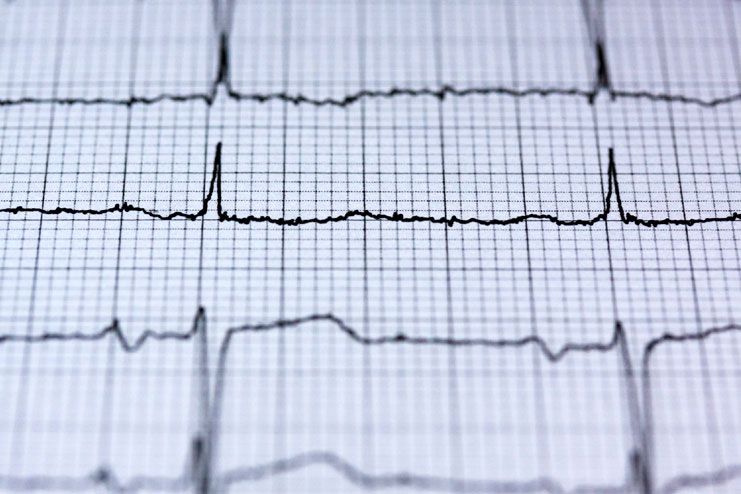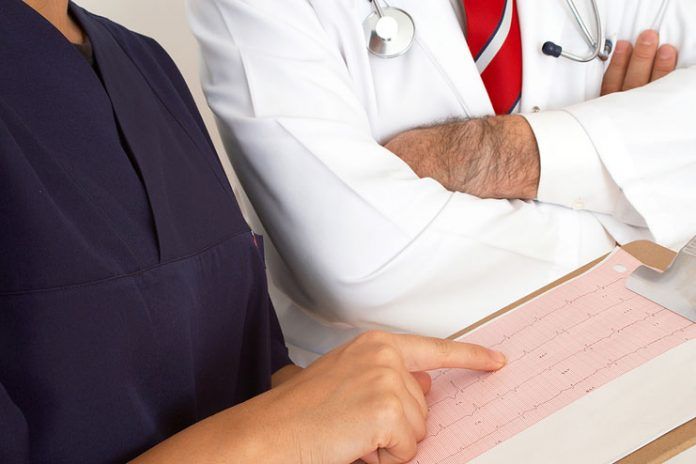Affiliate Disclaimer
Some links in this article are affiliate links. We may earn a small commission if you make a purchase through these links, at no extra cost to you. We only recommend products we find useful to our readersYour heart health plays a very crucial role in your life. Being assertive of your heart health is important and the tests for heart disease can successfully rule out any unnecessary suspicion that you might be struggling with altogether.
Knowing about the types of heart tests helps you stay prepared whenever the situation does demand for it. If you have been struggling with some sort of heart issue, the best way to combat that is by ensuring that you opt to get medical help for the same.
By the end of this article, you will have overall insights about the A-Z of the tests for heart disease that can keep the risks to the bare minimum.
Types of Heart Test
 When it comes to discussing about the types of heart test, the options are abundant depending on the kind of kind of heart health complication one is suffering from.
When it comes to discussing about the types of heart test, the options are abundant depending on the kind of kind of heart health complication one is suffering from.
Some of the basic and important heart tests that one definitely needs to know of include:
1. Angiography

Angiography is an imaging test involving the heart which is used to view the correct and accurate location of the blocked arteries in the body. If the doctor detects the presence of malformed arteries or plaque accumulation in the arteries, they’ll suggest getting an angiograph done to get a good look at where the blockage is.
Procedure:
A small tube is inserted into the artery and then carefully and gradually threaded through the way till the coronary arteries near the heart. Through the catheter, a special dye is injected as a marker into the bloodstream.
The dye is used as a highlight and then following that, x-ray pictures of the heart is taken and the condition of the arteries is analysed and see which part the blockage is at so as to administer the correct treatment in the correct spot.
Read: 10 Home Remedies For Heart Palpitations – Get Your Heart Rate In Check
2. Blood tests

Much like the other forms of tests for heart disease, even blood tests are an amazing way to look out for the problem altogether. You will be shocked to know that when your heart muscle does malfunction and you are at a risk of heart attack or stroke; chances are that the same would end up releasing certain substances into the blood stream.
Certain blood tests do help in assessing the levels of these marker substances to get a better understanding as to what it wrong with the heart and to what extent.
Procedure:
The most common types of heart test are the one conducted to find and trace the levels of troponin in the body. Additionally, these blood tests are even conducted to find the levels of other determining factors in the body that could be contributing to the heart disease.
Some other blood tests conducted include tests for blood fats like cholesterol and triglycerides along with a plethora of minerals altogether.
Additionally, apart from blood tests, even some urine tests are conducted to confirm the condition of the impaired heart functions altogether.
3. Echocardiogram tests

Echocardiogram is yet another one of the tests for heart disease. This uses specialized sound waves to diagnose as well as monitor some of the important changes around in the heart condition of an individual.
This is amazing in getting an overview image of the heart and find out if there is something wrong with the heart function surrounding the overall area or even the function that is happening in the heart.
Procedure:
In this, a probe is designed to send out sound waves that help in producing a moving image of the heart on the computer where the doctor looks out for it.
There are predominantly two distinct types of ECHO tests that the doctor suggests getting done, depending on the severity of the condition:
4. Dobutamine Stress Test
This is the form of ECHO test which is conducted to find out how the heart functions when it is subjected to physical activities and exercises.
In this, two scans are done, one when you are at rest and the other while you are exercising. If, in case, you are not able to exercise, the patient is given a dose of dobutamine to mimic the state of exercise.
The scans are compared and seen if there is any kind of important changes and disabilities to look around for.
Transoesophageal echocardiogram
This is yet another type of the ECHO in which the doctor inserts a probe into the throat of the patient to get a clear picture of the heart and see how it is functioning altogether. This is better option than the standard echocardiogram because of the fact that the oesophagus is a lot closer to the heart than the chest. It helps get a better picture of the situation to administer the required treatment options altogether.
4. Electrocardiogram

It is not surprising to know that our heart produces electrical impulses that helps in the proper functioning of the heart altogether. If you have been experiencing any kind of changes to your heart health, it is always best to get an ECG done and gets the problems checked out for good.
Procedure
For this, the doctor puts some leads on designated parts of the body which is then connected to the machines to note the waves depending on what it showcases. It is always best to get a steady rate to keep track of whether or not the heart is in a good place or does require any kind of tending to that we possibly don’t know of.
The leads are directly connected to the ECG machine which records the heart activity and then prints them out on the ECG sheet in the form of waves.
5. Electrophysiological studies

The Electrophysiological studies are predominantly conducted to record the electrical activity of the heart. People who consistently do suffer from heart issues and such should get the electrophysiological tests done for the maximum of benefits.
It is amazing in getting checked the issues associated with arrhythmias and other heart conditions.
Procedure
Much like how it happens with the angiography, even this procedure requires the insertion of fine tubes either into the vein or the artery through the groin region of the patient. The tubes are then extrapolated to the heart where are used to stimulate the heart and then take the recordings as they come up.
6. MRI

MRI (Magnetic resonance imaging) is a very prevalent tests for heart diseases which helps getting a better and overall picture of the heart to be used in understanding the picture better. It helps the doctor see the overall structure of the heart and how it is working and if there are any kind of defects that one needs to be aware of.
Procedure:
MRI used strong magnets as well as radio waves to image the heart and the overall structure of the same. It is capable of taking both still as well moving pictures of the heart, depending on what the doctor needs and asks for. Sometimes, they can even inject a special dye as a marker to see the heart and the arteries around better.
7. Myocardial Perfusion Scans

The Myocardial perfusion scan is yet another one of the popular and important types of heart test that you definitely need to look out for.
These tests are predominantly conducted to find out the rate of blood flow to the heart effectively. The process is a bit extensive but is an important marker in understanding the overall heart health altogether.
Procedure:
The doctors inject a special dye to be able to highlight the blood vessels in your heart. A large connected machine then helps create a picture of the heart by scanning the heart and seeking the dye out. If there are any obstructions along the path, the same is highlighted through. This test can even be conducted after the patient has been in rest and following an exercise regime.
8. Tilt Table Test

The tilt table test is one of the most important tests for heart disease. This test is suggested by the doctors and the specialists when you are constantly fainting and having similar episodes as such. If the doctor’s feel that the condition is something related to your heart, they will definitely suggest getting this specific test done for the best.
Procedure:
All you need to do is lie down on a table which can be angled so as to ensure that you can be connected to a heart and blood pressure monitor irrespective of whether or not you are lying or standing. The doctors can even have an intravenous needle injected to administer the medication during the procedure itself.
All in all, all the essential tests for heart diseases are not just extensive but very important as well. If you have been having complaints regarding your health altogether, this can actively help counter the problems and get immediate help for the condition before it gets worse. In here, we have mentioned some of the important and commonly opted for types of heart test that you should be aware of.




















